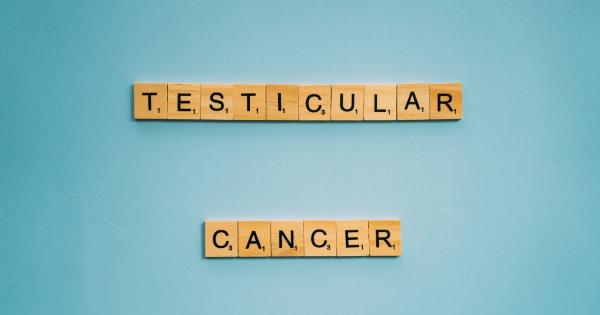Testicle pain, also known as testicular pain, is a discomfort or pain that occurs in one or both testicles. It can range from mild to severe and can be caused by a variety of factors.
Understanding the causes of testicle pain and finding relief is important for maintaining optimal male reproductive health. This article provides an overview of the common causes of testicle pain and offers guidance on seeking appropriate medical attention.
Causes of Testicle Pain
Testicle pain can arise from numerous conditions or injuries. It is essential to identify the underlying cause in order to determine the appropriate treatment. Some common causes of testicle pain include:.
1. Testicular Torsion
Testicular torsion occurs when the spermatic cord twists, cutting off the blood supply to the testicle. This is a medical emergency that requires immediate attention. It often presents with sudden and severe testicle pain, swelling, and abdominal pain.
2. Epididymitis
Epididymitis is the inflammation of the epididymis, a coiled tube located at the back of the testicle. It can be caused by a bacterial or viral infection, and symptoms usually include testicular pain, swelling, and tenderness.
3. Orchitis
Orchitis is inflammation of one or both testicles. It can be caused by a viral or bacterial infection, usually mumps or sexually transmitted infections. Along with testicle pain, swelling and fever are common symptoms.
4. Varicocele
A varicocele is an enlargement of the veins within the scrotum. It can cause testicular pain, discomfort, and swelling. Varicoceles are more common on the left side and often develop over time.
5. Kidney Stones
Kidney stones can cause referred pain to the testicles. When a stone passes through the urinary tract, it can cause severe pain that radiates to the groin and testicles.
6. Hernia
A hernia occurs when an organ or tissue pushes through a weak spot in the surrounding muscle or connective tissue. Inguinal hernias, which commonly affect men, can cause testicular pain or discomfort.
7. Trauma or Injury
Injuries to the testicles, such as a direct blow or trauma during sports or accidents, can result in testicular pain. In some cases, trauma can lead to long-term complications if not promptly addressed.
8. Testicular Cancer
While testicular cancer is relatively rare, it can cause testicle pain or discomfort. Any unexplained testicular pain or swelling should be evaluated by a medical professional.
9. Hydrocele
Hydrocele is a fluid-filled sac surrounding the testicle. It can cause testicular swelling, discomfort, or pain, especially if the fluid accumulates rapidly.
10. Prostatitis
Prostatitis, inflammation of the prostate gland, can cause testicular or pelvic pain. It is typically accompanied by urinary symptoms such as frequent urination, pain during urination, or blood in the urine.
Seeking Relief and Medical Attention
If you experience testicle pain, it is crucial to seek appropriate medical attention. While mild testicle pain may resolve on its own, severe or persistent pain requires medical evaluation.
Here are some tips for finding relief and when to seek medical attention:.
1. Rest and Support
If the pain is mild and not accompanied by any concerning symptoms, resting and supporting the testicles with an athletic supporter or snug underwear can help alleviate discomfort.
2. Apply Cold Compress
A cold compress can reduce inflammation and numb the area, providing temporary relief. Ensure the cold pack is wrapped in a cloth to prevent direct contact with the skin.
3. Over-the-Counter Pain Medication
Non-prescription pain medications, such as acetaminophen or ibuprofen, can help relieve mild to moderate testicle pain. Always follow the dosage instructions and consult a healthcare professional if needed.
4. Avoid Activities that Aggravate the Pain
If certain activities worsen the testicle pain, such as strenuous exercise or sexual intercourse, it is advisable to avoid them until the pain subsides.
5. Seek Medical Attention
It is essential to seek medical attention if:.
- The testicle pain is severe or sudden
- The testicle is swollen, red, or warm to the touch
- There is blood in the semen or urine
- There are signs of infection, such as fever or chills
- The pain is associated with abdominal or groin pain
Your healthcare provider will perform a physical examination, review your medical history, and may order additional tests or imaging studies to determine the cause of the testicle pain.
Conclusion
Testicle pain can be distressing, and finding relief depends on identifying the underlying cause. While some cases of testicle pain may resolve on their own, certain causes require medical attention.
It is crucial to promptly seek medical help for severe or persistent testicle pain to ensure appropriate diagnosis and treatment. Maintaining good overall genital health, including regular self-examinations and practicing safe sexual behaviors, is also important for preventing potential testicle issues.






























